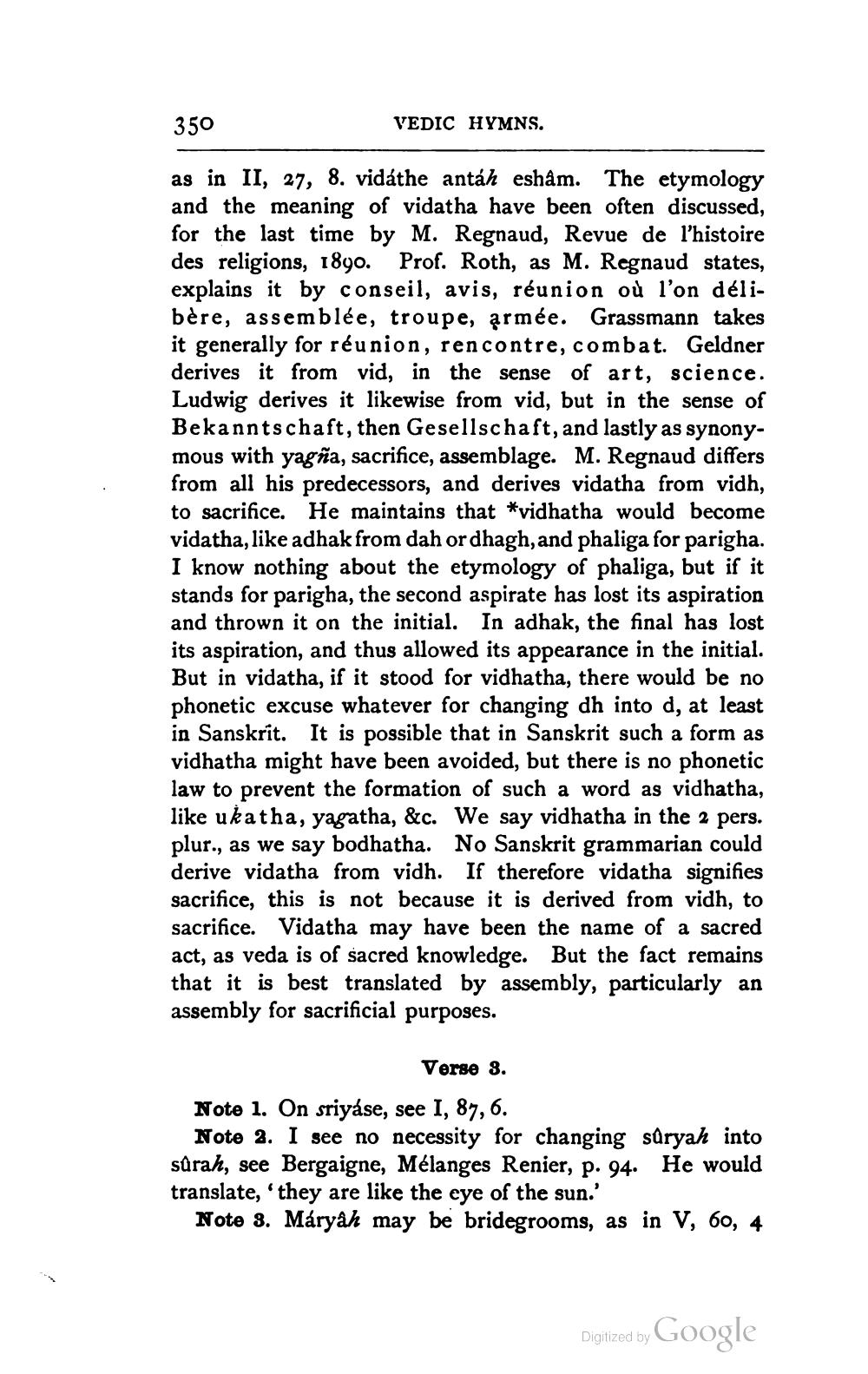________________
350
VEDIC HYMNS.
as in II, 27, 8. vidáthe antsh eshâm. The etymology and the meaning of vidatha have been often discussed, for the last time by M. Regnaud, Revue de l'histoire des religions, 1890. Prof. Roth, as M. Regnaud states, explains it by conseil, avis, réunion où l'on délibère, assemblée, troupe, armée. Grassmann takes it generally for réunion, rencontre, combat. Geldner derives it from vid, in the sense of art, science. Ludwig derives it likewise from vid, but in the sense of Bekanntschaft, then Gesellschaft, and lastly as synonymous with yagña, sacrifice, assemblage. M. Regnaud differs from all his predecessors, and derives vidatha from vidh, to sacrifice. He maintains that *vidhatha would become vidatha, like adhak from dah ordhagh, and phaliga for parigha. I know nothing about the etymology of phaliga, but if it stands for parigha, the second aspirate has lost its aspiration and thrown it on the initial. In adhak, the final has lost its aspiration, and thus allowed its appearance in the initial. But in vidatha, if it stood for vidhatha, there would be no phonetic excuse whatever for changing dh into d, at least in Sanskrit. It is possible that in Sanskrit such a form as vidhatha might have been avoided, but there is no phonetic law to prevent the formation of such a word as vidhatha, like u katha, yagatha, &c. We say vidhatha in the 2 pers. plur., as we say bodhatha. No Sanskrit grammarian could derive vidatha from vidh. If therefore vidatha signifies sacrifice, this is not because it is derived from vidh, to sacrifice. Vidatha may have been the name of a sacred act, as veda is of sacred knowledge. But the fact remains that it is best translated by assembly, particularly an assembly for sacrificial purposes.
Verse 3. Note 1. On sriyáse, see I, 87, 6.
Note 2. I see no necessity for changing suryah into sûrah, see Bergaigne, Mélanges Renier, p. 94. He would translate, they are like the eye of the sun.'
Note 3. Máryâh may be bridegrooms, as in V, 60, 4
Digitized by
Digitized by Google




